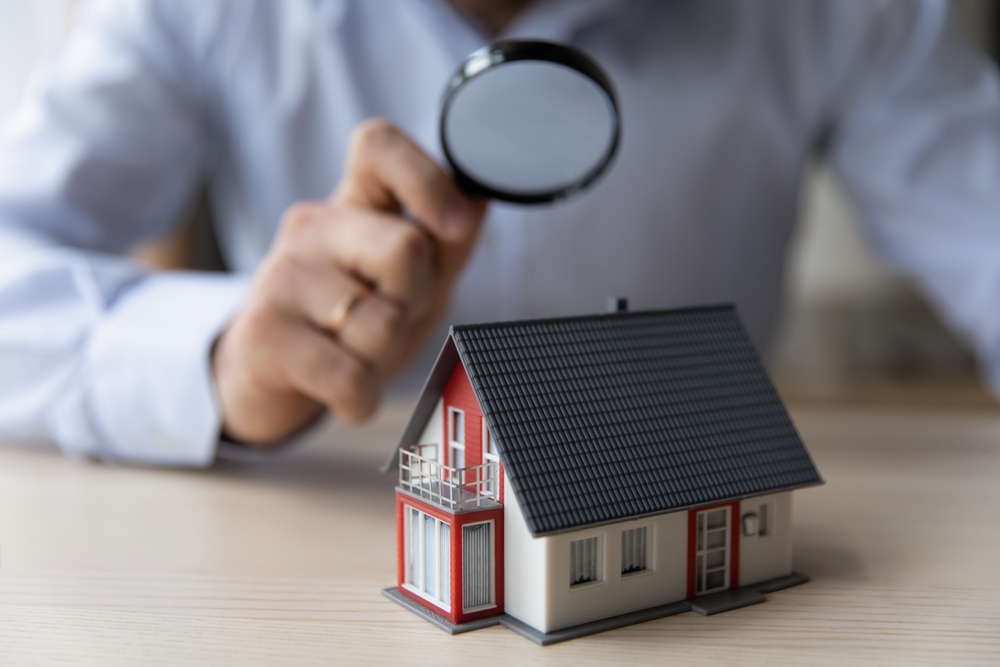Home Inspection and Real Estate Agents: A Comprehensive Guide
Introduction
Whether you are buying a property now or planning to buy one shortly, it is one important life decision. For most people, buying a home is the single most important and expensive financial decision of their lives.
Investing in real estate requires a considerable sum of money, irrespective of whether you are moving to an urban metropolis or a rural town.
This is where home inspection comes into the picture. A home inspection is a comprehensive assessment and examination of a property and a critical process in every homebuyer’s journey.
The demand for home inspections is on the rise, thanks to the growing awareness around the importance of completing this step before purchasing a home.
If you are thinking of starting a real estate career now, then becoming a home inspector can be a rewarding and exciting professional path.
Home inspectors are in demand, thanks to the growing need for housing across the country and now could be a good time to get started in this field.
The importance of home inspection is such that a bad inspection report can break the deal whereas a good one can instantly instill confidence in the buyer and influence their decision.
Whether you are a complete newbie or you have little to no knowledge about the qualifications and requirements to become a real estate home inspector, then this article is for you.
Keep on reading to find out more about how to step into the real estate industry as a licensed home inspector and what it will take you to get there.

Definition and roles of a home inspector and a real estate agent
The simplest way to define the role of a home inspector is one who verifies repairs after a home inspection and provides a detailed report about the findings and assessment of a property.
This report is provided to the prospective client or buyer who wants to make an informed purchase decision based on the property’s official evaluation.
For people who are new to the real estate world, it is common to confuse the job of a home inspector with that of a real estate agent.
A real estate agent is also known for assisting prospective buyers and sellers by giving an overview of a property’s pros and cons, but they are not responsible for submitting any official report or detailed analysis of a property.
While a real estate agent provides important details about a property’s salient features including its benefits and potential risks, a home inspector conducts an in-depth, thorough inspection of the property’s condition.
A home inspector’s job is to find and locate any potential risks, or existing or future problems that might be a part of a property.
A good home inspector will take a thorough look to closely examine and identify any issues, big or small, of a property.
Importance of Home Inspections for Real Estate Transactions
Ensuring buyer’s peace of mind through home inspections
On a superficial level, a home inspector simply conducts real estate house inspections and presents the findings to a prospective client.
However, in reality, their role is crucial to ensuring a smooth, hassle-free, and trustworthy real estate transaction between the seller and the buyer.
A home inspection provides a detailed, in-depth evaluation of the property, covering everything from the floor to the ceilings. It also includes various components of a home, such as - HVAC systems, plumbing, roofing, ventilation, and any other aspects that might require repair or fixing down the line.
By conducting a home inspection, buyers can find out about current risks and future problems before making a purchase decision.
This way, buyers can mitigate risks associated with investing in a property and can ensure that their desired property is aligned with their financial goals.
Protecting sellers from potential liability through home inspections
As part of their core job role and responsibility, home inspectors conduct a thorough inspection of a property’s internal and external conditions.
This inspection process is to ensure that potential sellers are protected from potential liability in the future.
Typically, a real estate home inspector conducts a detailed safety check by thoroughly investigating a property and ensuring that it is free from any hazards such as fire, faulty wiring, electrical shocks, poor air quality, gas leaks, structural issues, and mold infestations.
If a homebuyer finds out about any such safety issues or hazards after purchasing the property, they can file a lawsuit against the property owner by claiming damage to their life and property.
Therefore, a home inspection can help property owners and sellers identify potential issues and risks in advance.
This way sellers and buyers can mutually address these concerns promptly and eliminate any potential safety hazards in the future.
Who Verifies Repairs After a Home Inspection?
A home inspection is often the final and most crucial step between closing or canceling a deal.
This is why both sellers and buyers take home inspections seriously as a home inspection report can be considered as a valid cause for home inspection contingency.
If a property has issues and concerns that can be repaired or changed, it’s the responsibility of the seller to get those fixed.
Although it is not a law, and sellers are not always obligated to get the repairs done, to save the deal from falling out, sellers generally agree for the repairs.
In some cases, the home inspector might also ask a seller to lower the asking price of the property,
Assuming that a property owner has taken care of the issues highlighted in the home inspection report, the next question that arises is - who verifies repairs after home inspection?
Let’s find out about the answer to this question in detail next.

Understanding the process of repair verification
After an inspection is completed, repairs are initiated by the seller, both big and small.
Once the repairs are finished, then the verification process starts and generally, the buyer appoints the same home inspector for a re-evaluation of the repairs.
Doing so will ensure that the original repairs requested after the home inspector’s report are duly covered and completed for a buyer’s peace of mind.
Significant role of real estate agents in the repair verification process
Apart from a licensed home inspection office, a home inspection real estate agent also plays a vital role in ensuring that the best interests of a buyer are protected during a transaction.
Negotiating home repairs on behalf of a buyer and completing repair verification is one of the most important responsibilities of a real estate agent.
Real estate agents are also responsible for coordinating the repair process with a home inspector, especially when a prospective buyer is unable to do so on their own.
A real estate agent must guide their clients through the repair and verification process and to safeguard their interests against any potential risks and issues.
The Role of Real Estate Home Inspectors
Responsibilities and qualifications of real estate home inspectors
The requirements to become a real estate home inspector varies as per different states, but there are certain basic requirements which must be fulfilled by applicants. These include:
- Applicants must be 18 years of age or older.
- Applicants must be a legal resident of the U.S. or a lawfully admitted alien.
If you meet the basic eligibility criteria, then the next step is to research your state’s license requirements to become a licensed real estate home inspector.
Most states require applicants to complete a minimum duration of pre-licensing coursework, post which you will have to clear the final exam to obtain your license.
The licensing exam consists of 200 multiple choice questions which will test your knowledge and understanding of fundamental topics such as - home inspection standards, types of properties, construction, ethics and best practices, business management among others.
Additionally, some states might also require applicants to join a training program and gain some work experience to learn basic home inspection skills. You might be asked to work under the supervision of an experienced, licensed home inspector for a specific time duration.
Now coming to the job responsibilities of a home inspector, here’s a checklist of what you can expect in this role:
- Assess the structural condition, integrity and quality of the property, including all the individual components and systems which make up a home and their individual and collective usage.
- Evaluate the working and functioning of key components of a home, including but not limited to - electrical wirings, plumbing, HVAC systems, flooring, ceilings, roofing, heating system among others.
- Conduct detailed home inspections beyond the scope of the basic fixtures and components to evaluate the finer, lesser known parts and structures such as - moisture, air quality, insulation, decay, gaseous odors and leaks.
- Formulate and prepare a detailed, unbiased and accurate report with all the findings after inspecting a property. This report must be presented to the client along with recommendations and advice in the best of their interests.
Conducting thorough inspections to identify potential issues
Ideally, when a buyer accepts an offer from a seller, they can ask for a home inspection. After both parties have agreed to sign the property agreement, the seller can allow for a home inspection.
Typically, real estate house inspections are conducted to uncover hidden defects or glaring issues present in the interior or exterior of a property.
A home inspection can reveal a lot about a property’s actual condition and market value, including the following:
- Structural defects such as cracks, creaky floors, misaligned windows and doors, saggy or leaky ceilings and any other structural defects and deficiencies.
- Electrical systems, including faulty wiring, overloaded circuits, poor electrical circuitry, frayed fuses, poor insulation and exposed wiring are some common electrical hazards.
- Plumbing issues and concerns, including seepage, leakage, mold infestation, poor drainage, blocked sewage and wood rot due to water retention are common issues.
- Environmental hazards such as leaky gaseous indoors, poor air quality, molds, asbestos fibers, yeast or fungi and other allergens are common health hazards.
Providing detailed reports and recommendations for buyers and sellers
A real estate home inspector has a critical role to play in the industry. From conducting property inspections to investigating any issues and risks connected to the property, the inspector is responsible for certifying the condition of the house to be bought or sold.
After completing the inspection, a written report is submitted by the inspector, detailing the present condition of the property and repairs to be carried out if necessary, along with costs to do so.
A home inspector can also suggest if any repair or further inspection is required.